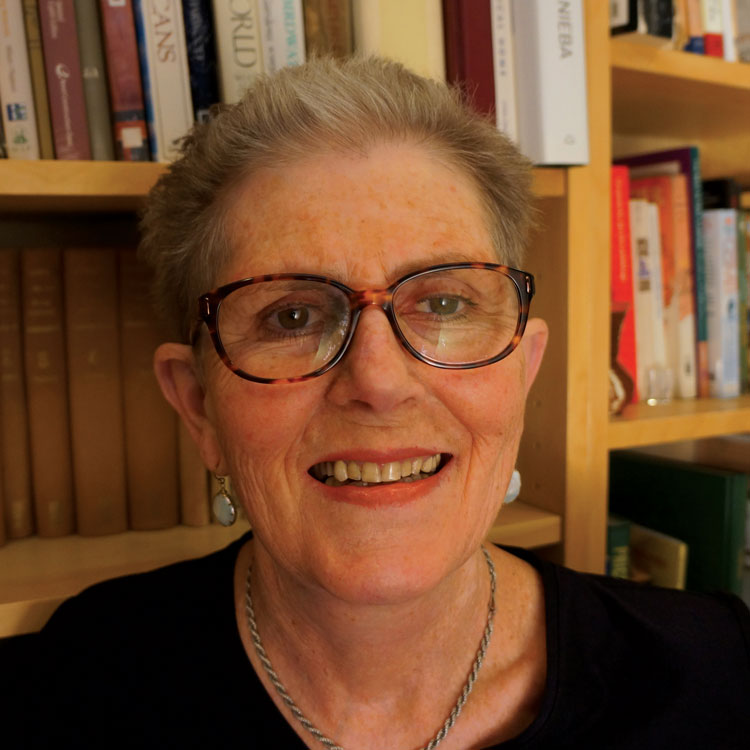BARBARA LIPSKA, A NEUROSCIENTIST at the National Institute of Mental Health (NIMH) in Bethesda, Maryland, has spent her career cutting and scrutinizing brain tissue. This pursuit has a benevolent goal: to understand mental illnesses and discover treatments for diseases, including depression, bipolar disorder and schizophrenia.
In her role as the director of the NIMH brain bank, Lipska has collected brain tissue and managed the distribution of samples to researchers around the world. The 67-year-old scientist never expected to see manifestations of mental illness in herself. But that’s exactly what happened when tumors in her brain grew and became inflamed while she was on a nine-week immunotherapy clinical trial for metastatic melanoma from April to June 2015. Lipska began to experience paranoia, memory lapses, extreme mood swings and personality changes. These symptoms were brought under control with steroids, radiation and a targeted treatment that she started in July 2015.
More About the Book
Through March 20, we will be discussing The Neuroscientist Who Lost Her Mind: My Tale of Madness and Recovery in our online book group.
As part of the book group discussion, Cancer Today conducted a Facebook Live interview with Barbara Lipska, which originally aired Feb. 19, 2019.
With unflinching honesty, Lipska, who was treated for breast cancer in 2009 and melanoma in 2011, recounts her descent into mental illness and her return to sanity in a memoir, The Neuroscientist Who Lost Her Mind: My Tale of Madness and Recovery. Most interesting to Lipska as a scientist is that she had no idea anything was wrong. This lack of self-awareness, known clinically as anosognosia, is characteristic of many psychiatric conditions. Lipska didn’t fully grasp her experience until she pieced together what happened from her own recollections and her family’s accounts.
“I didn’t understand what was happening to me and I did not understand the reactions of people surrounding me. I thought they went mad, or they [had] changed, not me,” says Lipska, who was born and raised in Warsaw, Poland, and now lives in Annandale, Virginia. “I had absolutely no insight.”
In a conversation with Cancer Today, Lipska talked about what her experiences taught her about mental illness and the value of scientific advances in extending her life.
Q: Why did you decide to write this book?
A: It was so complex, what happened, that I wanted to explore it for myself and for my family. And when I started writing it, it turned out to be extremely therapeutic. I loved dissecting the events and thinking about which brain region [was affected]. How could it happen? For me, as a neuroscientist, it was also scientifically very interesting.
Q: In the book, you draw connections between your tumor locations and specific areas of brain function. Did you set out to write a scientific exploration?
A: I think it’s my nature to approach the whole story from the scientific point of view, and I wanted to understand what happened. To understand it, I had to lay out how the brain works and which parts do what. I lost frontal cortex function, and I lost emotion. I lost empathy. I lost memory. It was almost like I was an experimental animal for myself. All the while, I was very much myself—almost the worst version of myself—which was also bizarre.

Barbara Lipska, a neuroscientist at the National Institute of Mental Health and author of The Neuroscientist Who Lost Her Mind: My Tale of Madness and Recovery. Photo by Mirek Gorski
Q: Did you have any impulse to hide some of the terrible moments you describe in the book?
A: No, I didn’t. I’m very straightforward, sometimes offending people because I would rather say what is on my mind. That’s what I do. If I don’t like something, I say it. If I misbehave, and this is known in my family, I don’t hide it. I just say “Sorry, I did this” or “Not sorry,” depending [on] what it is.
All this led to destigmatizing [mental illness], because if I talk about it openly and share it with other people, it doesn’t have this taboo surrounding it. The same is true for cancer, but it’s probably more so for mental illness these days. I think cancer carries less stigma nowadays than mental illness. But in any illness, people don’t want to be perceived as weak, and illness is weakness in some people’s minds, although it is not our fault that we have cancer, mental illness or any other illness. But with mental illness, people just cannot communicate with society. It’s terrible. This is what I experienced.
Q: What advice would you give to people facing cancer?
A: What was extremely helpful for me was researching and understanding the process and then sharing the information. I am an extrovert. Some people who are introverts may not agree with me, but for me, it was very helpful to build a team and be surrounded by people who gave me advice and supported me. Of course, my family helped me most. Everybody had something to say and we brainstormed together.
Q: What have you learned from this experience?
A: As terrible as it was, it was a gift. I feel richer because of this experience. I know people’s suffering and I know how other people can respond to mental illness, so I know the world a bit better.
I also really want to stress that, at this phase in my life, I have benefited from the advances in science so much. I’ve been a brain cancer survivor now for almost four years. But who knows how much longer? Nobody knows because we have just started to make this progress. I think cancer research is blooming now and it’s fantastic for investigators working in the field, but mental health research is behind. I hope that it will catch up at some point. The brain is a complicated organ. Many people are surprised that mental illness has anything to do with science. They think mental faculty is God or spirit. But it’s physical. What happened to me is proof.
Editor’s Note: In August 2018, Lipska learned that her brain tumors were growing again. In September, she started an immunotherapy combination treatment.
Cancer Today magazine is free to cancer patients, survivors and caregivers who live in the U.S. Subscribe here to receive four issues per year.





